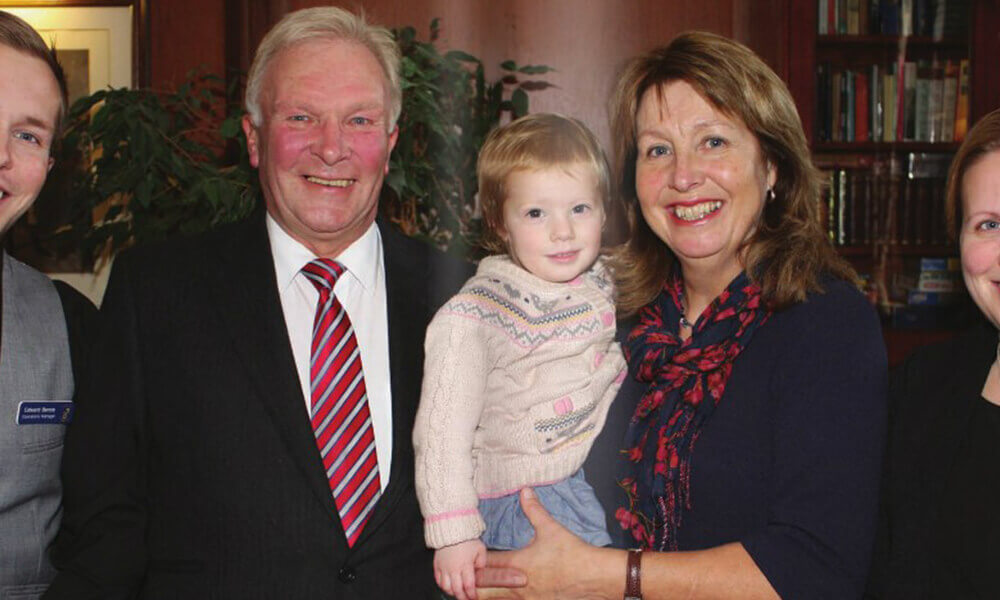Love Success, winner of the 2017 Best Female Owned Recruitment Agency – UK award, is the leading specialist recruitment agency in London, providing a comprehensive range of candidate and client services for businesses and individuals all over the UK. We spoke to the firm’s co-owners, Jane Atherton and Julia Vassie, about the secret to their incredible success, including formal recognition from the Prime Minister.
Launched in 2010, Love Success was wholly funded by Jane and Julia with no backers involved. Today, they are an award-winning agency and formally recognised by the Prime Minister with a personal congratulatory letter for the Fortuna 50 Index, which features the fastest growing female-led businesses, and Love Success came in the top 25. They are in the Who’s Who of Britain’s Business Elite, and are on target to turn over £8 million in 2017.
Jane explains: “We are 90% female in terms of our workforce, and 40% are part-time including mothers, carers and even dancers and actors. We have beautiful offices with the best view in London overlooking the Thames, the London Eye and Big Ben, which we use as our office clock! Julia and I have worked together for over 20 years. We are regularly referred to as the “Ant and Dec of recruitment.” We have a very safe client base, billing in excess of 200 clients a week.
Julia adds that the business mix is made up of 75% temporary/contingent staff with 25% being permanent introductions, and that Love Success mainly supply PA/EA, Office Support, Compliance, Marketing and HR staff to their clients. Salaries start at £20,000 and go up as high as £175,000. She adds that the firm has many consultants who are renowned recruitment specialists.
Following this excellent introduction, we asked Jane and Julia to offer their thoughts on the extent to which an ever-increasing number of women are joining boardrooms across the country every year. Jane adds that they would like the figure to be higher, but says that, “recruitment in the commercial arena is generally female-led due to the nature of the jobs we fulfil, such as PAs and EAs, which tend to attract more females. Whereas in financial services and IT recruitment, the jobs tend to be filled by a higher percentage of males.”
Bucking the trend Julia adds that in terms of women in the boardroom, it goes back to the old adage that a woman starts a family, so they are not seen as leaders in business. In this regard, Julia feels that something definitely needs to change and explains that she started her first business when her daughter was 9 months old and believes that “anybody who has the will and the get up and go can do the same, but unfortunately the opportunities and acceptance of working mothers is still not as widely recognised as it should be in the UK. I am an advocate for encouraging all, whether female or male, to obtain greater achievements in promotion to manager and director level positions.”
Bringing the balance in to recruitment As many businesses in the UK are seeing the benefit of having a more balanced workforce, Julia adds that converse to this, there is a UK-wide trend for recently launched firms to take on selfemployed contractors – reaping terrible results for the contractor. A recently launched delivery firm that was investigated by an undercover journalist in February this year uncovered that the firm was promising £15 an hour. However, when the undercover journalist went to work for them, his findings showed that the contractor’s pay worked out to be just under the minimum wage because the firm doesn’t pay for holidays, breaks or sickness.
“There have been several companies that have launched in the UK offering ‘flexible working/ self employed’ positions, when in reality they are not paying their staff or their taxes. I believe that anybody who sets up a company in the UK and takes on staff should pay their workers a standard rate of pay, and they should be looked after when they are sick and enjoy paid holidays. Our company makes sure that our temporary/flexible work force are paid a fair wage, and we also pay all legislative costs relating to NI contributions, tax, pension and holiday pay, but it seems that other firms are getting away under the ‘flexible working/self employed’ banner without contributing to the UK. Therefore, we are seeing a notable change in the balance of the workforce which is not helping the UK flourish as it should.”
Prior to launching Love Success, Julia and Jane were two of the original founding directors of Huntress that launched in 2000 and they grew the business to over 400 staff. Jane and Julia remained on the board for 9 years before undertaking a management buyout. The firm had 22 offices and turnover in excess of £100 million when it was sold for £40 million.
In terms of the staff that work for them now, Julia says they are amazing and that 40% of their staff have been working with them for several years and followed them from their previous companies. This is testament to their leadership and a massive vote of confidence to them both as these staff walked away from fantastic salaries and bonuses to work with Jane and Julia on their brand new start up and all the risks that entail with new companies. Jane adds that what they do at Love Success is not seen as the norm in recruitment, she explains, “We do offer truly flexible working without compromising on bonus earnings for our staff. We are able to offer this in return for long-term commitment. We have been through several births, marriages and divorces and we care greatly about our staff providing support whenever they need it.”
“We know that in everyone’s lives there will be times when they need time off or a reduction in hours to support their families or for a personal situation, and we provide this as we know we get it back tenfold in their commitment to us. Other recruitment agencies we know, don’t allow anything but full-time working, which we believe is incredibly limiting and doesn’t promote commitment or longevity within the talent force.”
Enviable Breadth of Clients in London Turning to clients, Love Success works with thousands of different clients every year from every business sector, 70% of which are repeat customers, which is proof that people believe in and rely on the service the firm provides. Jane adds that they do regular surveys to ensure that the service being provided is always at optimum quality, for all of their clients, and that they visit their clients on a regular basis to ensure that they are maintaining the level of service.
In terms of the future, even following BREXIT, things have got much busier for Love Success and they have been inundated. Jane says that they were nervous when the BREXIT result came out and of the impact this could have on London companies, professional services and banking in particular.
“However, we have seen that office rental rates in the city have taken a dip which is a slight indication of the concern within the City businesses. Also, immediately after the decision was made our high salaried positions (£150K plus) were put on hold for a month or so. Other than these two indicators, we have not been affected in our business. In fact, it’s been quite the opposite! We are on target to achieve a turnover of £8 million this year, but we are watching very carefully and talking with our clients constantly about the effect of BREXIT.”
Julia adds that businesses will adjust in time and that they have gone through several tough times including recessions in the past 27 years in the recruitment industry and is very confident the UK will get through this too. Having said that, Jane adds that recruitment companies with a very small client base are the ones to be wary of. If one of those clients withdraws their business, it can have a catastrophic affect to that small recruitment business. Love Success are fortunate that their business model of supplying to a high number of clients ensures the stability of the company. This business model has seen them through many recessions in the past. Love Success provides to a wide range of industries and this is obviously a winning formula for them.
Evolving with technology Julia says, “The challenge now is definitely the new way of communication through social media and how to embrace the right ones without affecting your brand. As such we believe the different sites offer their own plus points with Facebook being fun, Twitter for immediate responses, Instagram for visual impact/branding and LinkedIn is for professional networking. But you can’t solely rely on these to build your business. We use them to enhance our offering but it doesn’t deflect from the success we have in relationship building with our clients from visiting them in person. We also ensure that we meet all our applicants before working on their behalf or sending them out temping.”
“A lot of people try to build better technology to replace recruitment agencies. However technology cannot replace the face-to-face reality in uncovering the real applicant and their strengths and skills on offer. Recruitment companies are people based
businesses, so computers cannot convey an applicant’s personality or passion or even persuade a client to see a wildcard person for example. We get to know our candidates and gain their trust, having nurtured advised and supported them throughout the process. It’s from this engagement that we get a true picture and feel of where they would be ideally suited.
These very important attributes are never evident via a computerised copy of a CV. Technology is great to enhance but should not be the only tool used” Julia adds.
Creating History Jane concludes that, “anybody who wants to get on in life with a burning desire and ambition will do well. There are so many companies in London and the South East – it’s a great place to be. You don’t always need a first-class degree; it is all about the person, their approach and energy. In a recent survey we compiled we found that 20% of the top PAs had a degree. Therefore, if a client insists on only looking at “degree educated PAs” then they automatically miss out on 80% of very talented PAs! When we inform our clients of this the majority change their mind. We always ask our clients if they want us to supply them with the best CV or the best candidate? There’s a huge difference.”
Jane remarks that from her own personal experience, and her experience in employing recruitment consultants, that becoming a recruitment consultant is not generally the first choice as a career when finishing college or university. “I don’t know anybody that has planned to be a recruiter from day one. For me, the idea was actually sold to me by a temp who worked in my office. I called a very well known agency in London and they refused to see me initially because I “had no sales experience.” I challenged them on this point, adding that if I was willing to drive all the way from Manchester to London for an interview to try to convince them otherwise, then they should really see me. They did and the rest is history!”





















